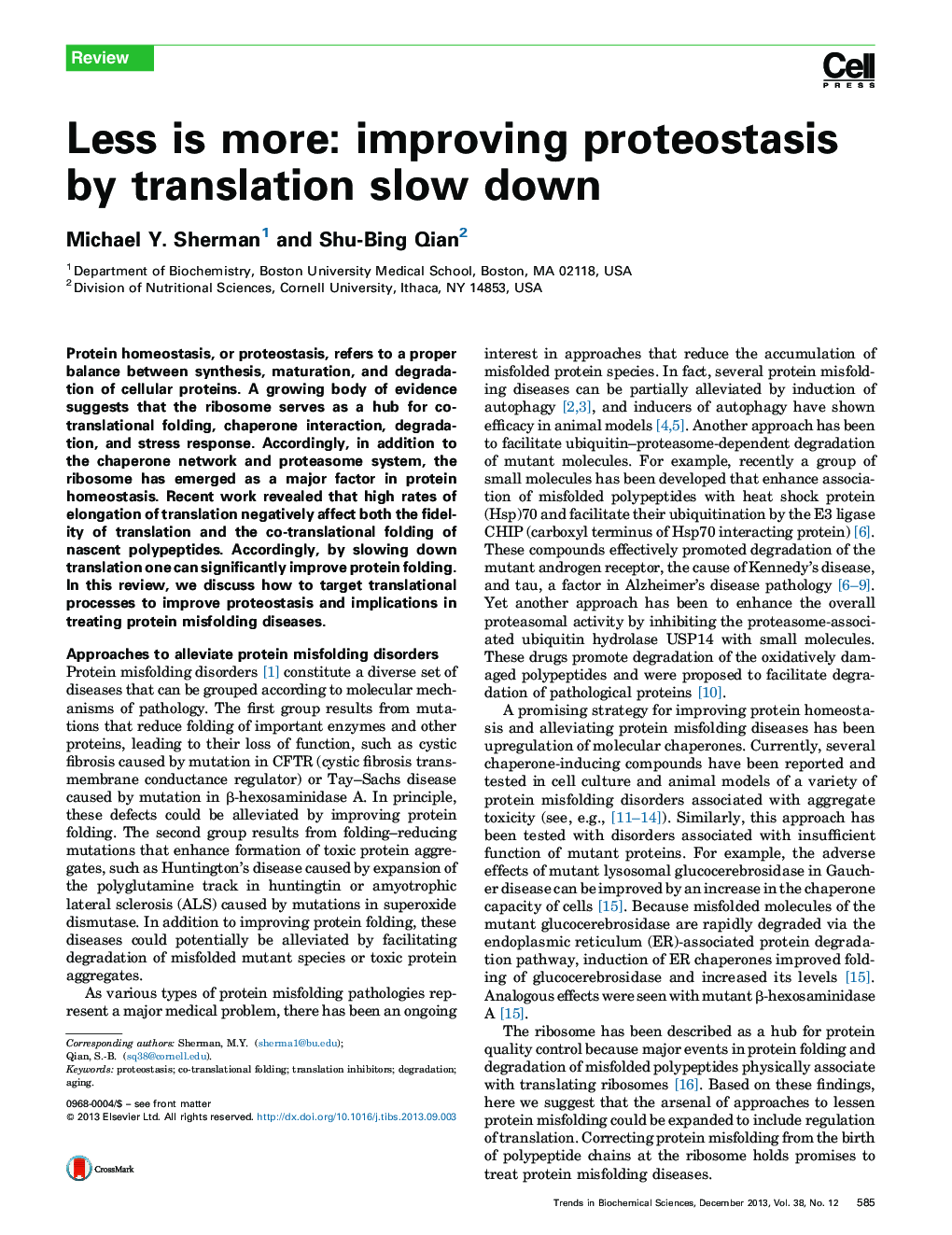| Article ID | Journal | Published Year | Pages | File Type |
|---|---|---|---|---|
| 2030805 | Trends in Biochemical Sciences | 2013 | 7 Pages |
•Protein folding and degradation physically associate with ribosome.•High rates of elongation reduce folding efficiency.•Mild inhibition of translation improves protein homeostasis.•Mild inhibition of translation rescues folding defects of mutant proteins.
Protein homeostasis, or proteostasis, refers to a proper balance between synthesis, maturation, and degradation of cellular proteins. A growing body of evidence suggests that the ribosome serves as a hub for co-translational folding, chaperone interaction, degradation, and stress response. Accordingly, in addition to the chaperone network and proteasome system, the ribosome has emerged as a major factor in protein homeostasis. Recent work revealed that high rates of elongation of translation negatively affect both the fidelity of translation and the co-translational folding of nascent polypeptides. Accordingly, by slowing down translation one can significantly improve protein folding. In this review, we discuss how to target translational processes to improve proteostasis and implications in treating protein misfolding diseases.
